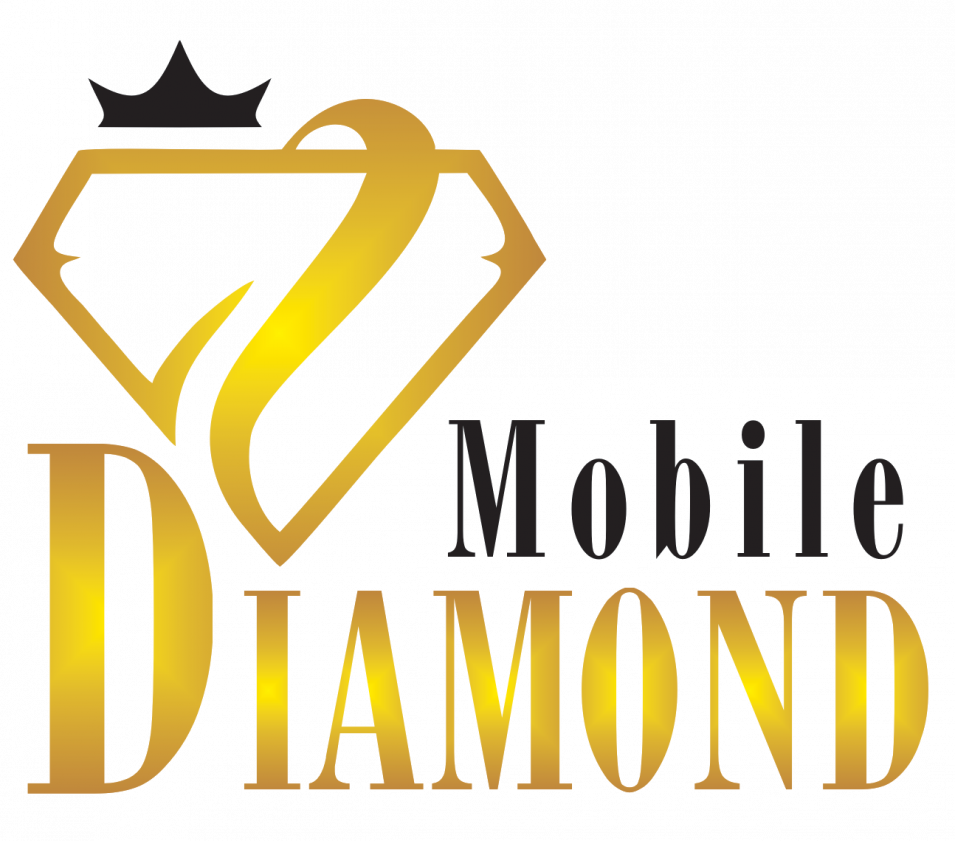توضیحات
عرضه
معرفی14 سپتامبر 2021وضعیتموجود، عرضه شده در 24 سپتامبر 2021 مدلها– A2643 (نسخه جهانی)
– A2484 (نسخه آمریکا)
– A2641 (نسخه کانادا و ژاپن)
– A2644 (نسخه چین و هنگ کنگ)
– A2645 (نسخه روسیه)
نمایشگر
نوعSuper Retina XDR OLEDابعاد6.7 اینچ (~87.8% نسبت نمایشگر به بدنه)رزولوشن1284 در 2778 پیکسل، 19.5:9 (~457 پیکسل در اینچ تراکم پیکسلی)محافظ– شیشهی سرامیکی مقاوم در برابر خش
– پوشش اولفوبیک برای کاهش بازتاب نور و لکه دست – طیف رنگ گسترده
– نمایشگر True-tone
متفرقه
رنگهاخاکستری، طلایی، نقرهای، آبینرخ مخصوص جذب (SAR)1.18 وات/کیلوگرم (برای سر) 1.20 وات/کیلوگرم (برای بدن)
بدنه
ابعاد160.8 در 78.1 در 7.7 میلیمتروزن240 گرمساختجلوی شیشهای (گوریلا گلس)، پشت شیشهای (گوریلا گلس)، فریم استیل ضدزنگ – گواهی IP68 برای مقاومت در برابر نفوذ آب و گرد و غبار (تا 6 متر برای 30 دقیقه)سیمکارتتک سیمکارته (نانو-سیم and/or eSIM) یا دو سیمکارته (نانو-سیم، همزمان یکی فعال (dual stand-by)) – برای چین
پلتفرم
سیستمعامل در زمان عرضهiOS 15تراشهاپل A15 Bionic (5 نانومتر)پردازنده مرکزی6 هستهای (دو هستهی 3.22 گیگاهرتز Avalanche و چهار هستهی Blizzard)پردازنده گرافیکیاپل GPU (5 هستهای)
حافظه
درگاه حافظهخیرحافظه داخلی 256 گیگابایت با 6 گیگابایت رم، 256 گیگابایت با 6 گیگابایت رم، 512 گیگابایت با 6 گیگابایت رم، 1 ترابایت با 6 گیگابایت نوع حافظهNVMe
دوربین
اصلی12 مگاپیکسل (لنز واید 26 میلیمتری، فوکوس خودکار دوال پیکسل با تشخیص فاز، 1.9 میکرومتر سایز پیکسل، لرزشگیر اپتیکال سنسور شیفت، f/1.5)
12 مگاپیکسل (لنز 77 میلیمتری تلهفوتو، فوکوس خودکار با تشخیص فاز، لرزشگیر اپتیکال تصویر، زوم اپتیکال سه برابر، f/2.8)
12 مگاپیکسل (لنز اولتراواید 13 میلیمتری با پوشش 120 درجه، فوکوس خودکار، f/1.8)
اسکنر TOF 3D LiDAR (سنسور تشخیص عمق تصویر)قابلیتهاHDR، فلاش دوگانهی (LED (dual-tone، (photo/panorama)فیلمبرداری4K@24/30/60fps، 1080p@30/60/120/240fps، 10‑bit HDR، Dolby Vision HDR (تا 60fps)، ProRes، ضبط صدای استریوسلفی12 مگاپیکسل (لنز واید 23 میلیمتری، 1/3.6 اینچ سایز سنسور، f/2.2)
SL 3D (حسگر بیومتریک تشخیص عمق)فیلمبرداری سلفی4K@24/25/30/60fps، 1080p@30/60/120fps، لرزشگیر الکترونیکی تصویر-ژیروسکوپی
صدا
اسپیکربله، اسپیکر استریوجک ۳.۵ میلیمتریخیر
باتری
باتریباتری غیرقابل تعویض لیتیوم یونی با ظرفیت 4352 میلی آمپر ساعت (16.75 وات ساعت)سرعت شارژ– شارژ سریع 27 وات (50 درصد در 30 دقیقه)
– USB Power Delivery 2.0
– شارژ سریع بی سیم 7.5 وات Qi و 15 وات در صورت استفاده از MagSafe
قابلیتها
حسگرهاFace ID، شتابسنج، ژیروسکوپ، سنسور مجاورت، قطبنما، فشارسنج – پشتیبانی از دستیار هوشمند سیری با پشتیبانی از زبان محاوره
– پشتیبانی از پهنای باند فوقعریض (UWB)
– اپل Pay (Visa، مسترکارت، AMEX گواهی)
شبکه
فناوریGSM / CDMA / HSPA / EVDO / LTE / 5G
اتصالات
شبکه بیسیمWi-Fi 802.11 a/b/g/n/ac/6، دو بانده، هاتاسپاتبلوتوث5.0، A2DP، LEGPSبله، با A-GPS، GLONASS، GALILEO، BDS، QZSSNFCبلهرادیوخیرUSB– لایتنینگ
– USB 2.0












Peterhig –
https://telegra.ph/Non-Gamstop-Casino-Free-Spins-No-Deposit-Offers-2023-03-27
Peterhig –
https://telegra.ph/Top-Non-Gamstop-Casinos-in-the-UK-for-20234-03-27
Peterhig –
https://telegra.ph/Casinos-Not-on-Gamstop-No-Deposit-Bonus-Offers-03-27
Arthurhed –
Space, time: The continual question
If time moves differently on the peaks of mountains than the shores of the ocean, you can imagine that things get even more bizarre the farther away from Earth you travel.
[url=https://kra30c.cc]kraken[/url]
To add more complication: Time also passes slower the faster a person or spacecraft is moving, according to Einstein’s theory of special relativity.
Astronauts on the International Space Station, for example, are lucky, said Dr. Bijunath Patla, a theoretical physicist with the US National Institute of Standards and Technology, in a phone interview. Though the space station orbits about 200 miles (322 kilometers) above Earth’s surface, it also travels at high speeds — looping the planet 16 times per day — so the effects of relativity somewhat cancel each other out, Patla said. For that reason, astronauts on the orbiting laboratory can easily use Earth time to stay on schedule.
https://kra30c.cc
kraken onion
For other missions — it’s not so simple.
Fortunately, scientists already have decades of experience contending with the complexities.
Spacecraft, for example, are equipped with their own clocks called oscillators, Gramling said.
“They maintain their own time,” Gramling said. “And most of our operations for spacecraft — even spacecraft that are all the way out at Pluto, or the Kuiper Belt, like New Horizons — (rely on) ground stations that are back on Earth. So everything they’re doing has to correlate with UTC.”
But those spacecraft also rely on their own kept time, Gramling said. Vehicles exploring deep into the solar system, for example, have to know — based on their own time scale — when they are approaching a planet in case the spacecraft needs to use that planetary body for navigational purposes, she added.
For 50 years, scientists have also been able to observe atomic clocks that are tucked aboard GPS satellites, which orbit Earth about 12,550 miles (20,200 kilometers) away — or about one-nineteenth the distance between our planet and the moon.
Studying those clocks has given scientists a great starting point to begin extrapolating further as they set out to establish a new time scale for the moon, Patla said.
“We can easily compare (GPS) clocks to clocks on the ground,” Patla said, adding that scientists have found a way to gently slow GPS clocks down, making them tick more in-line with Earth-bound clocks. “Obviously, it’s not as easy as it sounds, but it’s easier than making a mess.”
Peterhig –
https://telegra.ph/Mobile-Casinos-Not-on-Gamstop-for-Convenient-Play-03-27
Peterhig –
https://telegra.ph/Non-Gamstop-Casinos-UK-Free-Spins-Bonuses-Explained-03-27
Frankstavy –
Lunar clockwork
What scientists know for certain is that they need to get precision timekeeping instruments to the moon.
[url=https://kra30c.cc]kraken ссылка[/url]
Exactly who pays for lunar clocks, which type of clocks will go, and where they’ll be positioned are all questions that remain up in the air, Gramling said.
“We have to work all of this out,” she said. “I don’t think we know yet. I think it will be an amalgamation of several different things.”
https://kra30c.cc
kraken вход
Atomic clocks, Gramling noted, are great for long-term stability, and crystal oscillators have an advantage for short-term stability.
“You never trust one clock,” Gramling added. “And you never trust two clocks.”
Clocks of various types could be placed inside satellites that orbit the moon or perhaps at the precise locations on the lunar surface that astronauts will one day visit.
As for price, an atomic clock worthy of space travel could cost around a few million dollars, according Gramling, with crystal oscillators coming in substantially cheaper.
But, Patla said, you get what you pay for.
“The very cheap oscillators may be off by milliseconds or even 10s of milliseconds,” he added. “And that is important because for navigation purposes — we need to have the clocks synchronized to 10s of nanoseconds.”
A network of clocks on the moon could work in concert to inform the new lunar time scale, just as atomic clocks do for UTC on Earth.
(There will not, Gramling added, be different time zones on the moon. “There have been conversations about creating different zones, with the answer: ‘No,’” she said. “But that could change in the future.”)
Davidhab –
This online casino’s Tiger Fortune game is a must-try! jogo do tigrinho demo
Peterhig –
https://telegra.ph/Best-Non-Gamstop-Casinos-Available-in-2020-03-27
DarnellLep –
Space, time: The continual question
If time moves differently on the peaks of mountains than the shores of the ocean, you can imagine that things get even more bizarre the farther away from Earth you travel.
[url=https://kra30c.cc]kraken onion[/url]
To add more complication: Time also passes slower the faster a person or spacecraft is moving, according to Einstein’s theory of special relativity.
Astronauts on the International Space Station, for example, are lucky, said Dr. Bijunath Patla, a theoretical physicist with the US National Institute of Standards and Technology, in a phone interview. Though the space station orbits about 200 miles (322 kilometers) above Earth’s surface, it also travels at high speeds — looping the planet 16 times per day — so the effects of relativity somewhat cancel each other out, Patla said. For that reason, astronauts on the orbiting laboratory can easily use Earth time to stay on schedule.
https://kra30c.cc
kraken даркнет
For other missions — it’s not so simple.
Fortunately, scientists already have decades of experience contending with the complexities.
Spacecraft, for example, are equipped with their own clocks called oscillators, Gramling said.
“They maintain their own time,” Gramling said. “And most of our operations for spacecraft — even spacecraft that are all the way out at Pluto, or the Kuiper Belt, like New Horizons — (rely on) ground stations that are back on Earth. So everything they’re doing has to correlate with UTC.”
But those spacecraft also rely on their own kept time, Gramling said. Vehicles exploring deep into the solar system, for example, have to know — based on their own time scale — when they are approaching a planet in case the spacecraft needs to use that planetary body for navigational purposes, she added.
For 50 years, scientists have also been able to observe atomic clocks that are tucked aboard GPS satellites, which orbit Earth about 12,550 miles (20,200 kilometers) away — or about one-nineteenth the distance between our planet and the moon.
Studying those clocks has given scientists a great starting point to begin extrapolating further as they set out to establish a new time scale for the moon, Patla said.
“We can easily compare (GPS) clocks to clocks on the ground,” Patla said, adding that scientists have found a way to gently slow GPS clocks down, making them tick more in-line with Earth-bound clocks. “Obviously, it’s not as easy as it sounds, but it’s easier than making a mess.”
Gordonuntow –
‘A whole different mindset’
Accurate clockwork is one matter. But how future astronauts living and working on the lunar surface will experience time is a different question entirely.
[url=https://kra30c.cc]Кракен даркнет[/url]
On Earth, our sense of one day is governed by the fact that the planet completes one rotation every 24 hours, giving most locations a consistent cycle of daylight and darkened nights. On the moon, however, the equator receives roughly 14 days of sunlight followed by 14 days of darkness.
“It’s just a very, very different concept” on the moon, Betts said. “And (NASA is) talking about landing astronauts in the very interesting south polar region (of the moon), where you have permanently lit and permanently shadowed areas. So, that’s a whole other set of confusion.”
https://kra30c.cc
kra30cc
“It’ll be challenging” for those astronauts, Betts added. “It’s so different than Earth, and it’s just a whole different mindset.”
That will be true no matter what time is displayed on the astronauts’ watches.
Still, precision timekeeping matters — not just for the sake of scientifically understanding the passage of time on the moon but also for setting up all the infrastructure necessary to carry out missions.
The beauty of creating a time scale from scratch, Gramling said, is that scientists can take everything they have learned about timekeeping on Earth and apply it to a new system on the moon.
And if scientists can get it right on the moon, she added, they can get it right later down the road if NASA fulfills its goal of sending astronauts deeper into the solar system.
“We are very much looking at executing this on the moon, learning what we can learn,” Gramling said, “so that we are prepared to do the same thing on Mars or other future bodies.”
Peterhig –
https://telegra.ph/Exploring-No-Gamstop-Casino-Slots-for-Players-03-27
Andrebum –
Lunar clockwork
What scientists know for certain is that they need to get precision timekeeping instruments to the moon.
[url=https://kra30c.cc]kraken зайти[/url]
Exactly who pays for lunar clocks, which type of clocks will go, and where they’ll be positioned are all questions that remain up in the air, Gramling said.
“We have to work all of this out,” she said. “I don’t think we know yet. I think it will be an amalgamation of several different things.”
https://kra30c.cc
kraken сайт
Atomic clocks, Gramling noted, are great for long-term stability, and crystal oscillators have an advantage for short-term stability.
“You never trust one clock,” Gramling added. “And you never trust two clocks.”
Clocks of various types could be placed inside satellites that orbit the moon or perhaps at the precise locations on the lunar surface that astronauts will one day visit.
As for price, an atomic clock worthy of space travel could cost around a few million dollars, according Gramling, with crystal oscillators coming in substantially cheaper.
But, Patla said, you get what you pay for.
“The very cheap oscillators may be off by milliseconds or even 10s of milliseconds,” he added. “And that is important because for navigation purposes — we need to have the clocks synchronized to 10s of nanoseconds.”
A network of clocks on the moon could work in concert to inform the new lunar time scale, just as atomic clocks do for UTC on Earth.
(There will not, Gramling added, be different time zones on the moon. “There have been conversations about creating different zones, with the answer: ‘No,’” she said. “But that could change in the future.”)
Robertnib –
‘A whole different mindset’
Accurate clockwork is one matter. But how future astronauts living and working on the lunar surface will experience time is a different question entirely.
[url=https://kra30c.cc]kraken войти[/url]
On Earth, our sense of one day is governed by the fact that the planet completes one rotation every 24 hours, giving most locations a consistent cycle of daylight and darkened nights. On the moon, however, the equator receives roughly 14 days of sunlight followed by 14 days of darkness.
“It’s just a very, very different concept” on the moon, Betts said. “And (NASA is) talking about landing astronauts in the very interesting south polar region (of the moon), where you have permanently lit and permanently shadowed areas. So, that’s a whole other set of confusion.”
https://kra30c.cc
kraken войти
“It’ll be challenging” for those astronauts, Betts added. “It’s so different than Earth, and it’s just a whole different mindset.”
That will be true no matter what time is displayed on the astronauts’ watches.
Still, precision timekeeping matters — not just for the sake of scientifically understanding the passage of time on the moon but also for setting up all the infrastructure necessary to carry out missions.
The beauty of creating a time scale from scratch, Gramling said, is that scientists can take everything they have learned about timekeeping on Earth and apply it to a new system on the moon.
And if scientists can get it right on the moon, she added, they can get it right later down the road if NASA fulfills its goal of sending astronauts deeper into the solar system.
“We are very much looking at executing this on the moon, learning what we can learn,” Gramling said, “so that we are prepared to do the same thing on Mars or other future bodies.”
Peterhig –
https://telegra.ph/No-Gamstop-Casino-Insights-and-Alternatives-03-27
VirgilMek –
Space, time: The continual question
If time moves differently on the peaks of mountains than the shores of the ocean, you can imagine that things get even more bizarre the farther away from Earth you travel.
[url=https://kra30c.cc]kra31 cc[/url]
To add more complication: Time also passes slower the faster a person or spacecraft is moving, according to Einstein’s theory of special relativity.
Astronauts on the International Space Station, for example, are lucky, said Dr. Bijunath Patla, a theoretical physicist with the US National Institute of Standards and Technology, in a phone interview. Though the space station orbits about 200 miles (322 kilometers) above Earth’s surface, it also travels at high speeds — looping the planet 16 times per day — so the effects of relativity somewhat cancel each other out, Patla said. For that reason, astronauts on the orbiting laboratory can easily use Earth time to stay on schedule.
https://kra30c.cc
Площадка кракен
For other missions — it’s not so simple.
Fortunately, scientists already have decades of experience contending with the complexities.
Spacecraft, for example, are equipped with their own clocks called oscillators, Gramling said.
“They maintain their own time,” Gramling said. “And most of our operations for spacecraft — even spacecraft that are all the way out at Pluto, or the Kuiper Belt, like New Horizons — (rely on) ground stations that are back on Earth. So everything they’re doing has to correlate with UTC.”
But those spacecraft also rely on their own kept time, Gramling said. Vehicles exploring deep into the solar system, for example, have to know — based on their own time scale — when they are approaching a planet in case the spacecraft needs to use that planetary body for navigational purposes, she added.
For 50 years, scientists have also been able to observe atomic clocks that are tucked aboard GPS satellites, which orbit Earth about 12,550 miles (20,200 kilometers) away — or about one-nineteenth the distance between our planet and the moon.
Studying those clocks has given scientists a great starting point to begin extrapolating further as they set out to establish a new time scale for the moon, Patla said.
“We can easily compare (GPS) clocks to clocks on the ground,” Patla said, adding that scientists have found a way to gently slow GPS clocks down, making them tick more in-line with Earth-bound clocks. “Obviously, it’s not as easy as it sounds, but it’s easier than making a mess.”
Petersog –
‘A whole different mindset’
Accurate clockwork is one matter. But how future astronauts living and working on the lunar surface will experience time is a different question entirely.
[url=https://kra30c.cc]kraken тор[/url]
On Earth, our sense of one day is governed by the fact that the planet completes one rotation every 24 hours, giving most locations a consistent cycle of daylight and darkened nights. On the moon, however, the equator receives roughly 14 days of sunlight followed by 14 days of darkness.
“It’s just a very, very different concept” on the moon, Betts said. “And (NASA is) talking about landing astronauts in the very interesting south polar region (of the moon), where you have permanently lit and permanently shadowed areas. So, that’s a whole other set of confusion.”
https://kra30c.cc
кракен ссылка
“It’ll be challenging” for those astronauts, Betts added. “It’s so different than Earth, and it’s just a whole different mindset.”
That will be true no matter what time is displayed on the astronauts’ watches.
Still, precision timekeeping matters — not just for the sake of scientifically understanding the passage of time on the moon but also for setting up all the infrastructure necessary to carry out missions.
The beauty of creating a time scale from scratch, Gramling said, is that scientists can take everything they have learned about timekeeping on Earth and apply it to a new system on the moon.
And if scientists can get it right on the moon, she added, they can get it right later down the road if NASA fulfills its goal of sending astronauts deeper into the solar system.
“We are very much looking at executing this on the moon, learning what we can learn,” Gramling said, “so that we are prepared to do the same thing on Mars or other future bodies.”
Peterhig –
https://telegra.ph/Reliable-Non-Gamstop-Casinos-for-Safe-Online-Betting-03-27
Davidhab –
This casino’s Tiger Fortune slot is pure entertainment. tigrinho demo
Peterhig –
https://telegra.ph/Best-UK-Casinos-with-No-Deposit-Free-Spins-Outside-Gamstop-03-27
WillieHaway –
The poker online glows—real rush! plinko
Peterhig –
https://telegra.ph/Guide-to-Online-Casinos-Without-Gamstop-Restrictions-03-27
Peterhig –
https://telegra.ph/Non-GamStop-Casinos-No-Deposit-Bonus-Guide-03-27
Phillipp –
Why viewers still use to read news papers when in this technological
world the whole thing is available on web?
Here is my homepage: TP88
Peterhig –
https://telegra.ph/Best-Casino-Options-in-the-UK-Without-Gamstop-03-27
Kennethcix –
психолог emdr терапевт Современный мир диктует свои условия, и порой нам необходима квалифицированная помощь, чтобы справиться с вызовами. Психолог онлайн – это удобный и анонимный способ получить поддержку в комфортной обстановке. Работа с психологом: путь к гармонии Обращение к психологу – это признак силы и заботы о себе. Специалист поможет разобраться в сложных ситуациях, найти ресурсы для преодоления трудностей и обрести внутреннюю гармонию.
Davidhab –
Tiger Fortune’s design is wild and perfect. fortune tiger
Peterhig –
https://telegra.ph/Explore-New-Casinos-Without-Gamstop-Restrictions-03-27
Peterhig –
https://telegra.ph/Best-Non-Gamstop-Curacao-Casino-Sites-for-Players-03-27
Peterhig –
https://telegra.ph/Exploring-UK-Non-GamStop-Casinos-for-Better-Options-03-27
JamesPlunc –
https://uralmetal.ru/metalloprokat/nerzhaveushiy/listovoy-prokat-listy.html – нержавеющий лист 430
Scottyhoona –
https://altclasses.in/pages/1xbet_promo_code_free_bet.html
Davidhab –
The bonus features in Tiger Fortune are super rewarding. fortune tiger bet
JamesWiz –
Dubayda “Portu Pati” n?dir v? niy? ham? bundan dan?s?r?
https://x.com/IrinaPavlovna84/status/1909960841606070387
Peterhig –
https://telegra.ph/Non-Gamstop-Casino-Reviews-and-Player-Insights-03-27
Thomascak –
https://penzo.cz/doku/pgs/1xbet_welcome_bonus_and_promo_code.html
Herbertjaisy –
https://israelafrica.mn.co/posts/82541788?utm_source=manual
Lorna –
Hey! This is kind of off topic but I need some help
from an established blog. Is it tough to set up your own blog?
I’m not very techincal but I can figure things out pretty fast.
I’m thinking about making my own but I’m not sure where to begin. Do you have any points or suggestions?
Cheers
Here is my web site … Online Gambling in Vietnam
Peterhig –
https://telegra.ph/Discover-UK-Non-GamStop-Casinos-for-Safe-Gaming-03-27
Davidhab –
Tiger Fortune brings the jungle to life! fortune tiger demo
Peterhig –
https://telegra.ph/New-Non-Gamstop-Casinos-No-Deposit-Bonus-Offers-2023-03-27
WillieHaway –
Online casinos feel dicey—double risk! mines
Peterhig –
https://telegra.ph/Non-Gamstop-PayPal-Casino-Guide-for-Players-03-27
Peterhig –
https://telegra.ph/Best-Non-Gamstop-Casinos-in-the-UK-2023-Guide-03-27
Peterhig –
https://telegra.ph/Exploring-Non-Gamstop-Casinos-for-Online-Gaming2-03-27
Davidhab –
Tiger Fortune’s bonus features are top-notch. fortune tiger demo
Peterhig –
https://telegra.ph/Non-Gamstop-Boku-Casino-Guide-and-Features-Explained-03-27
Peterhig –
https://telegra.ph/Top-Casinos-Without-Gamstop-Registration-Requirements-03-27
Peterhig –
https://telegra.ph/Casino-Free-Spins-No-Deposit-Options-Not-on-Gamstop-03-27
Peterhig –
https://telegra.ph/Legit-Non-Gamstop-Casinos-for-Safe-Online-Gaming-03-27